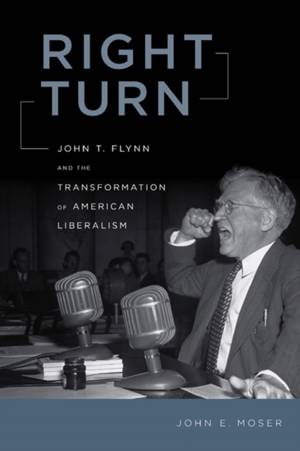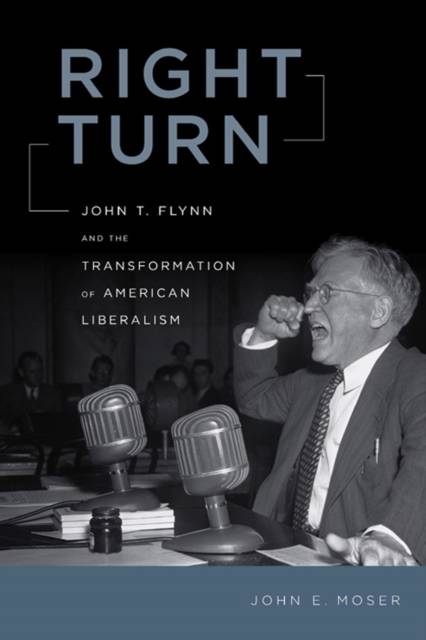
- Retrait gratuit dans votre magasin Club
- 7.000.000 titres dans notre catalogue
- Payer en toute sécurité
- Toujours un magasin près de chez vous
- Retrait gratuit dans votre magasin Club
- 7.000.0000 titres dans notre catalogue
- Payer en toute sécurité
- Toujours un magasin près de chez vous
Right Turn
John T. Flynn and the Transformation of American Liberalism
John E MoserDescription
John T. Flynn, a prolific writer, columnist for the New Republic, Harper's Magazine, and Collier's Weekly, radio commentator, and political activist, was described by the New York Times in 1964 as "a man of wide-ranging contradictions." In this new biography of Flynn, John E. Moser fleshes out his many contradictions and profound influence on U.S. history and political discourse.
In the 1930s, Flynn advocated extensive regulation of the economy, the breakup of holding companies, and heavy taxes on the wealthy. A mere fifteen years later he was denouncing the New Deal as "creeping socialism," calling for an abolition of the income tax, and hailing Senator Joseph McCarthy and his fellow anticommunists as saviors of the American Republic. Yet throughout his career he insisted that he had remained true to the principles of liberalism as he understood them.
It was America's political culture that changed, he argued, and not his values and views. Drawing on Flynn's life and his prolific writings, Moser illuminates how liberalism in America changed during the mid-twentieth century and considers whether Flynn's ideological odyssey was the product of opportunism, or the result of a set of deep-seated principles that he championed consistently over the years. In addition, Right Turn examines Flynn's role in laying the foundations for the "culture war" that would be played out in American society for the rest of the century, helping to define modern American conservatism.
Spécifications
Parties prenantes
- Auteur(s) :
- Editeur:
Contenu
- Nombre de pages :
- 277
- Langue:
- Anglais
Caractéristiques
- EAN:
- 9780814757000
- Date de parution :
- 01-04-05
- Format:
- Livre relié
- Format numérique:
- Genaaid
- Dimensions :
- 165 mm x 234 mm
- Poids :
- 517 g

Les avis
Nous publions uniquement les avis qui respectent les conditions requises. Consultez nos conditions pour les avis.






